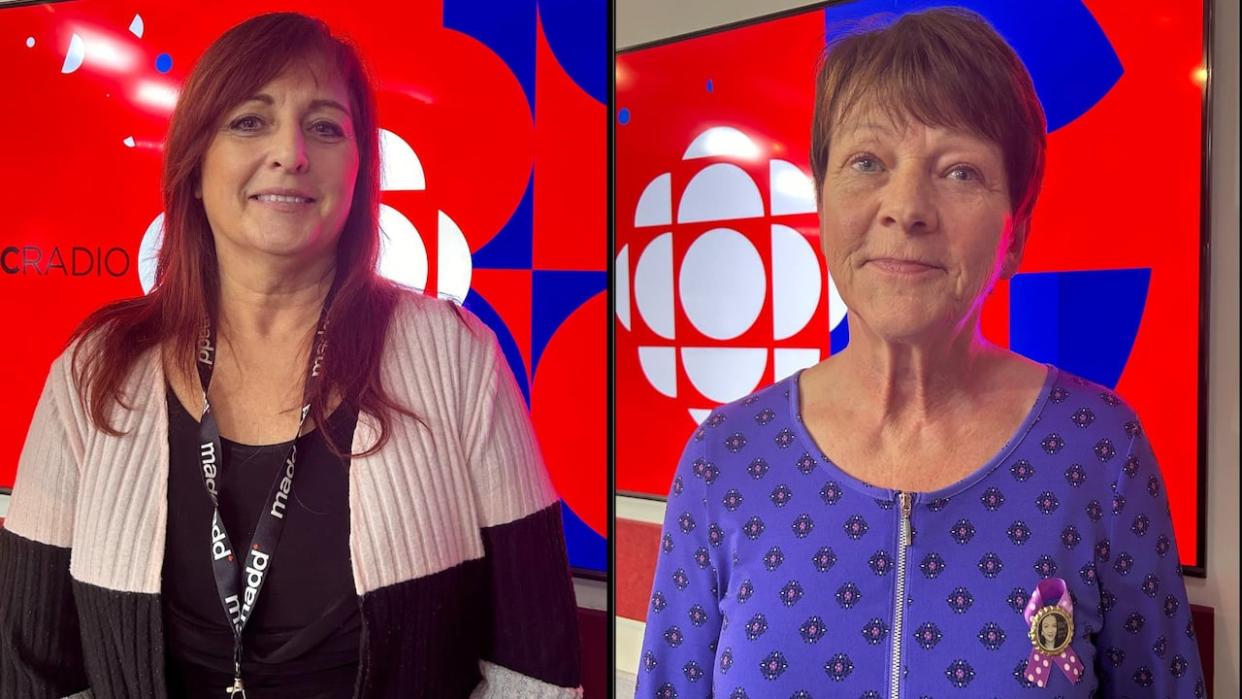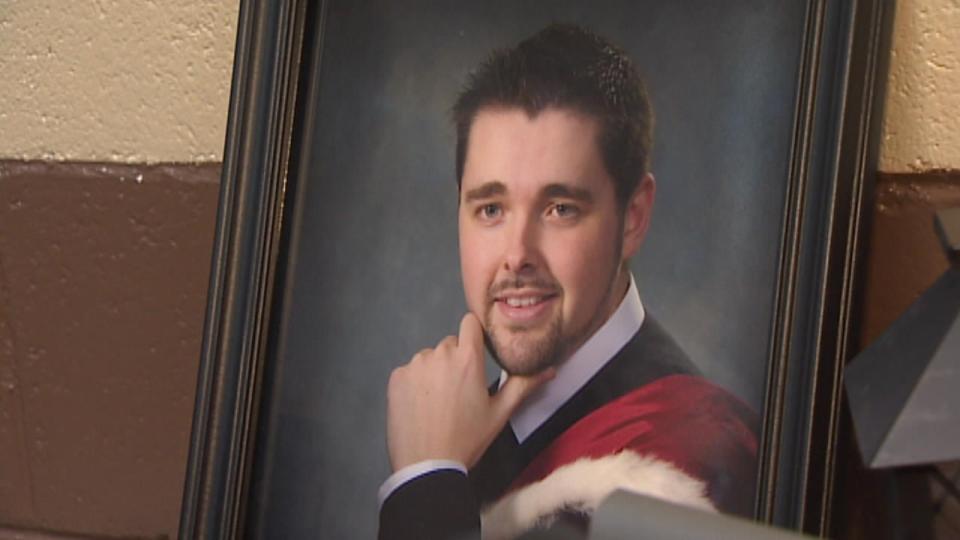Mothers who lost their children call for N.L. to change its driving culture


Patricia Hines-Coats, left, and Gail Thorne are both advocates for educating people on safe driving after the deaths of their family members on the road. (Amanda Gear/CBC)
Patricia Hynes-Coates and Gail Thorne share a few things in common.
They are both advocates that will share their story with anyone who would listen about the dangers of reckless driving. And for both, their advocacy followed when each lost a family member due to that kind of driving.
"When we put the child in his grave," said Hynes-Coates about her stepson, Nicholas Coats, who died in 2013, "I made a promise to him that I wouldn't stop until we made changes."
She is a former national president of Mothers Against Drunk Driving.
Thorne lost her daughter Hannah in 2016. Thorne and her family created the organization STAND for Hannah to educate youth on safe driving.
They both also agree that what they say is a problematic driving culture in the province stems from mindset.
From driving under the influence of alcohol and drugs to speeding beyond the limit and driving aggressively, Hynes-Coates says a mental shift is necessary — one that isn't dismissive or flaunts an "it won't happen to me" attitude.
People don't understand, Thorne says, that a car can be a weapon.

Hannah Thorne was 18 when she died in a car accident in 2016, caused by two drivers drag racing on the highway. (Submitted)
"In the case of my daughter, it's no difference to me that she was killed by a crash or if somebody shot her. In my mind, she was murdered because somebody didn't abide by the rules," Thorne said.
She says the justice system is too lenient with reckless drivers.
Heavier role for the justice system
One recent fatal collision involved two women in January of this year.
The women, both 22, collided with an SUV on the Trans-Canada Highway en route to Clarenville. Police said The SUV's driver showed signs of impairment.
During a summer pilot program, the provincial government installed road cameras in Paradise and Mount Pearl, recording over 94,000 vehicles exceeding the speed limit by at least 11 km/h; a quarter of these were travelling 20 km/h above the limit.
Service N.L. Minister Sarah Stoodley said in an interview with CBC News that government is "always reviewing the Highway Traffic Act."
"If you're impaired with driving a vehicle and you cause death or something," Stoodley said, "then that could be up to life in prison and that's defined in the Criminal Code."
However, that's not often the case.
In both Thorne and Hynes-Coates cases, the convicts served only nine months in jail.
"Newfoundland has the lowest sentences for impaired driving causing death in the country," said Mike Murray, who was a crown attorney for 26 years and recently retired.
"One of the scariest things that you can be asked to do as a Crown attorney is to prosecute an impaired causing death file because they're so technical and so many tiny mistakes can lead to evidence being excluded.".
Often, he says, cases of impaired driving are dropped due to technicalities. He gives the example of a case where an impaired driving charge was dismissed because the arresting officer's watch and the breath technician's watch were not synchronized by three minutes.
Murray notes two types of people: those who drive recklessly and get away with it but can be deterred by high fines or jail time, and those who simply "don't care."
"Those are the people that really just need to be taken off the road to protect the public."
System going in the wrong direction
Sean Kelly, the president and CEO of SafetyNL, says the driving curriculum mandated by the government is outdated.
In a basic program, new drivers receive 25 hours of classroom instruction and 10.5 hours of in-car training, he says. However, further training relies on parents and friends, which some new drivers may not have access to.
Kelly says cultural changes begin with legislation, which he thinks is heading in the wrong direction.
"We're removing requirements for training like we've done with taxi drivers and Uber drivers," he said.
"Years ago we removed the requirements for vehicle inspections … people don't necessarily care about maintaining [their car] or keeping it safe. There are vehicles out there that are not safe, not checked. And even when they're checked by a garage, the garage can't do anything about it."

Nick Coates was killed on August 16, 2013. He was riding a motorcycle when he collided with a pickup truck on Kenmount Road. He was 27 years old. (CBC)
In the end, Hynes-Coates emphasizes that a person behind the wheel needs to remember that the choices they make on the road have consequences, and can be lifelong.
"When you strike someone and you kill or injure them, you've got to live with that for the rest of your life," Hynes-Coates said.
"To live without your loved one is the cruellest thing that anyone could ever do. And those are the things that people need to stop and think about."
Download our free CBC News app to sign up for push alerts for CBC Newfoundland and Labrador. Click here to visit our landing page.


